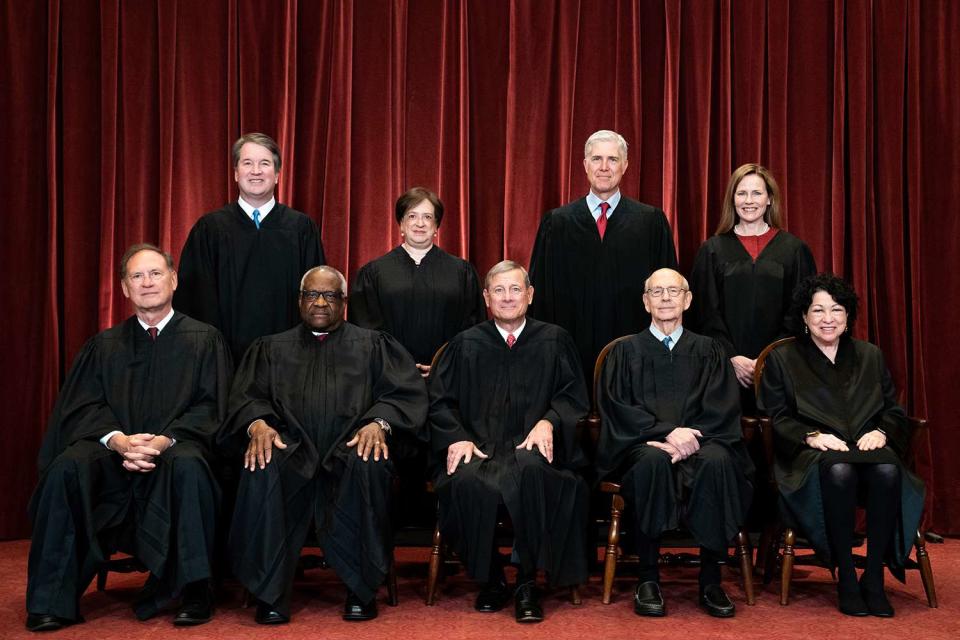Justice Sotomayor Expresses 'Growing Concern' for Separation of Church and State in Dissenting SCOTUS Opinion

- Oops!Something went wrong.Please try again later.
- Oops!Something went wrong.Please try again later.
- Oops!Something went wrong.Please try again later.
Erin Schaff/AFP/ Getty Justice Sonia Sotomayor
Supreme Court Justice Sonia Sotomayor expressed her "growing concern" about the erosion of a foundational principle in American government.
"This Court continues to dismantle the wall of separation between church and state that the Framers fought to build," Sotomayor wrote in a dissenting opinion released Tuesday in a decision on the case of Carson v. Makin.
In a 6-3 vote along ideological lines, the Supreme Court ruled in favor of striking down a policy in Maine that blocked religious schools from receiving taxpayer funds.
Attorneys representing Maine argued that private religious schools should not be allowed to participate in a state-funded tuition assistance program based in part on the First Amendment of the U.S. Constitution, which states that "Congress shall make no law respecting an establishment of religion, or prohibiting the free exercise thereof."
"As a result," Sotomayor wrote, "the Court has upended constitutional doctrine, shifting from a rule that permits States to decline to fund religious organizations to one that requires States in many circumstances to subsidize religious indoctrination with taxpayer dollars."
Justices Stephen Breyer and Elena Kagan also voted in the minority, with Breyer writing his own dissenting opinion that Kagan joined him on.

Erin Schaff-Pool/Getty Supreme Court justices
Chief Justice John Roberts wrote the majority opinion, siding with a group of parents in Maine who sued over the law which excludes religious schools from the tuition assistance program.
Roberts wrote for the majority that the state's non-religious requirement for participation violates the Free Exercise Clause of the First Amendment.
"The program operates to identify and exclude otherwise eligible schools on the basis of their religious exercise," he wrote.
RELATED: Sonia Sotomayor on Wise Words That Helped When 'People Said I Wasn't Smart Enough' for Supreme Court
Sotomayor disagreed and called the majority opinion "especially perverse because the benefit at issue is the public education to which all of Maine's children are entitled under the State Constitution."
"Today, the Court leads us to a place where separation of church and state becomes a constitutional violation," Sotomayor wrote in closing. "If a State cannot offer subsidies to its citizens without being required to fund religious exercise, any State that values its historic antiestablishment interests more than this Court does will have to curtail the support it offers to its citizens. With growing concern for where this Court will lead us next, I respectfully dissent."

